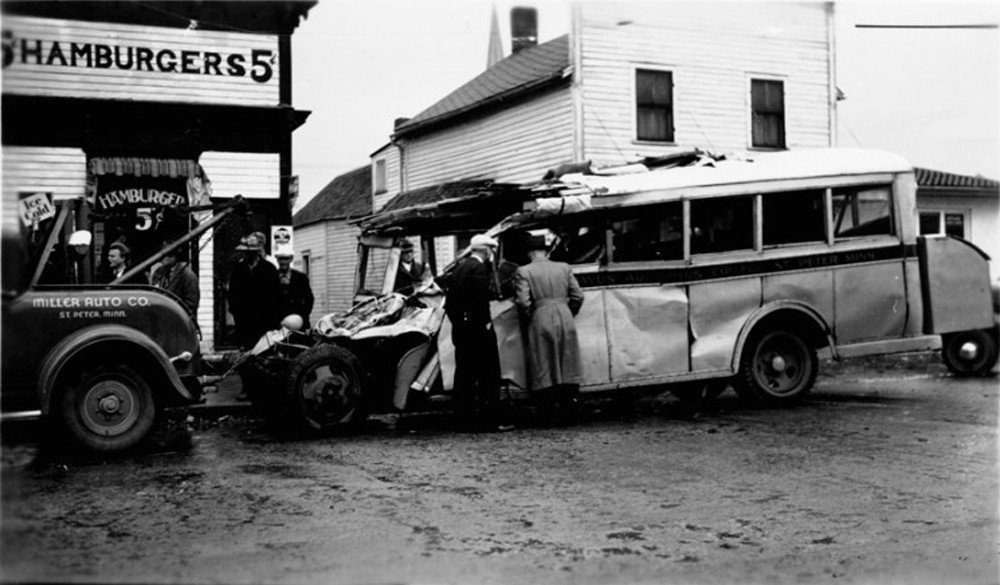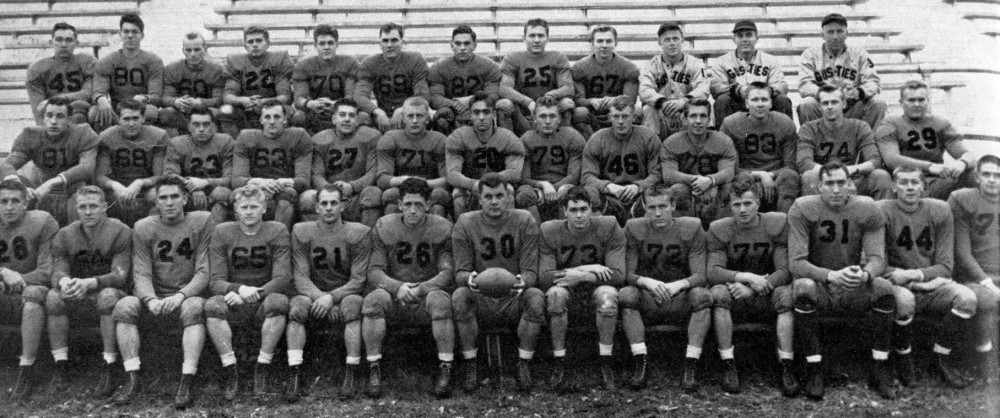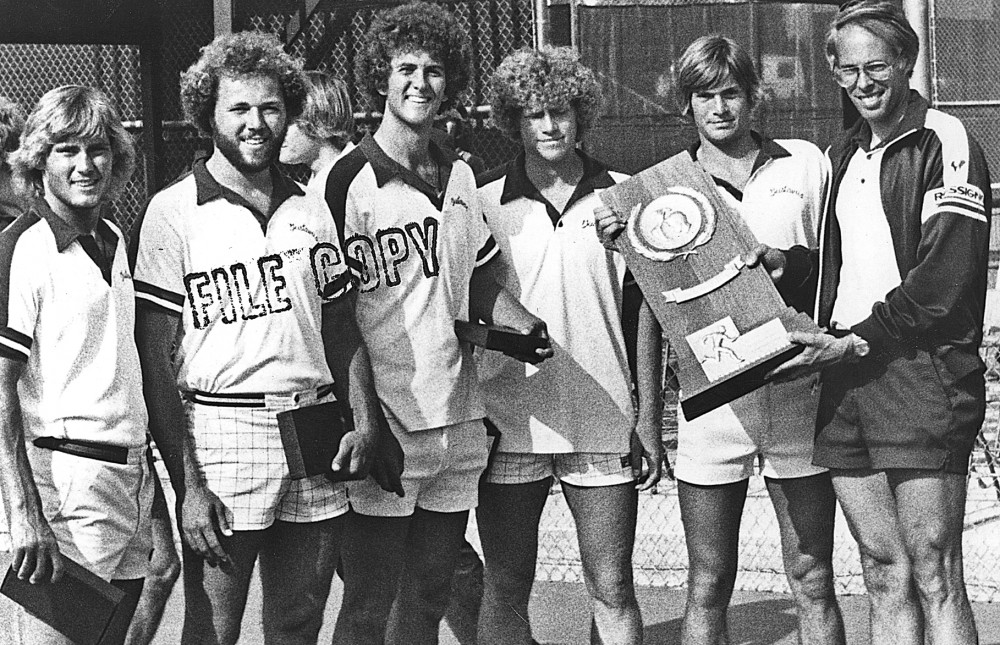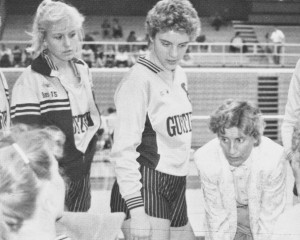Timeline
1910 A previously placed ban on athletic competition was lifted in June of 1910, but administrative support was still lacking. Students then decided to collect fees and organize their own athletic teams, complete with student coaches and managers.
1920 On March 15, 1920 a meeting was held at Carleton College to vote on the formation of an intercollegiate athletic conference. The colleges included were Carleton, Hamline, St. John’s, Macalester, St. Olaf, St. Thomas, Gustavus, Concordia. With the exception of Concordia, all of the representatives voted in favor of the conference, so the Minnesota Intercollegiate Athletic Conference (MIAC) was formed.
1930 George Myrum, who coached football, baseball, gymnastics and basketball, led Gustavus to seventeen MIAC conference championships. On Friday, November 11, 1938, Myrum died in a tragic bus crash.

1940 Coach John Roning was the first to suit up the Gustavus football team in gold uniforms, earning them the moniker “Golden Gusties” after the U of M’s “Golden Gophers.”

1970 Don Roberts and the hockey team faced many challenges in the absence of an ice arena, which included traveling at all hours of the night to practice and attend games at other teams’ indoor rinks. In 1972 the decision was made to build an indoor ice arena and on November 22, 1975, Lund Arena was completed and dedicated to Russell and Rhoda Lund.
1980 The 80s marked the rise of women’s athletics. Gretchen Koehler, who coached several Gustavus teams, including volleyball, tennis, softball and basketball, was most recognized for her volleyball teams’ dominance. Koehler’s squads won conference titles in 1982, 1984, 1985 and 1986.


2000 In May 2009, Steve Wilkinson, head tennis coach at Gustavus for over forty years, announced his retirement. Wilkinson has achieved the status of the winningest coach in men’s tennis collegiate history, and has won 36 MIAC titles in 38 years. Wilkinson is also the founder of Tennis and Life Camps, the largest tennis camp in the country.
Story of History
All summer the athletic department has been compiling photos and details about key events from Gustavus’ athletic history in order to arrange them into a timeline. The timeline, dating back to 1910, chronicles important sports-related events in Gustavus’ 150-year history.
Athletic Director and Facilities Manager of Lund Center Al Molde said he hopes the timeline, located in Lund Center, will help students realize that there is a rich history of athletics at Gustavus.
“My hope is that when students take the time to read the timeline and look at the photos they’ll come away with a real sense that there were people here before them and that that is important to our traditions [at Gustavus]. I think the timeline will solidify a sense of tradition and a sense of history for the college,” Molde said.
The timeline showcases many events from each decade and is on display in the Lund Center’s Hall of Fame. “Who knows? We might leave it there, or we might have to add on to it. We might end up needing to find another wall. But our goal was really to portray the history of athletics here at Gustavus in the first 150 years, and that’s what we did,” Molde said.
Attended a state high school girls basketball game there the other night and was curious as to the capacity of Lund Arena for basketball. Was shocked when I read 3,500 on the Gustie website. I would have guessed there were far more people there than 3,500.
Is my guesstimating off? Or do they pack far more in there?
Thanks,
Clinton